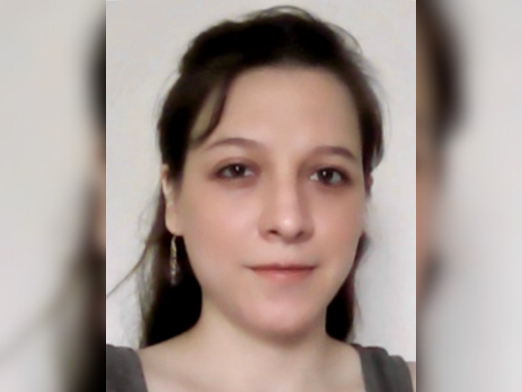PhD in Modern Languages and Cultural Studies graduate shines light on migration as a contemporary issue
Jyllian Park - 18 June 2024

Laura Velazquez-Velazquez is an accomplished academic with an impressive depth of knowledge about language and culture.
Velazquez, who holds a BA in Classics, an MA in Chinese Studies and an MA in Comparative and World Literature, spent four years studying for her second master's in China before coming to Canada to complete her PhD at the University of Alberta.
“During my time as a PhD student in Modern Languages and Cultural Studies, with a focus on Comparative Literature, I had the opportunity to participate in various research initiatives. These experiences equipped me with a diverse set of skills that have proved incredibly useful in the job market,” says Velazquez, who recently accepted a position with an AI company as a language specialist.
Her dissertation, which compares migration in and out of China with that of Latin America, examines how the portrayal in narratives of migration from the Hispanic and Sinophone worlds shape our point of view about migrant mobility. It also explores the potential legal implications of certain narratives depicting certain cultures' actions and boundaries.
“Through my research, I aim to identify thematic or narrative patterns that contribute to the delineation of a migrant mode of narration. Additionally, I explore the potential legal implications of certain narrative approaches to migrant mobility within the narrative realm, particularly in relation to the varying understandings of citizenship and its impact on migrant characters' actions and boundaries. I believe this research offers valuable insights into how different societies perceive the legality and illegality of various forms of mobility, particularly migrant mobility. It sheds light on the diverse approaches taken by different societies in addressing these issues.”
While grappling with how to approach her dissertation, Velazquez received guidance from her co-supervisors, Christopher Lupke and Victoria Ruétalo, to focus on migration and its significance as a contemporary issue while also delving into mobility and its crucial role in understanding the migrant experience.
“Intrigued by these suggestions, I began delving deeper into these topics, and they resonated with me,” says Velazquez. “I integrated the notion of point of view into my research because I observed that narrative examinations are not always given the attention they deserve in contemporary discourse. Yet, as consumers of stories crafted by others, understanding perspectives becomes paramount in revealing how individuals interpret social phenomena or perceive societal interpretations of certain issues.”
It might not come as a surprise, but the multilingual academic has more than a passing interest in words and how we use them.
“I love learning new languages, especially ancient ones, and grammar is like a hobby to me. I find it fascinating. I can dive into a grammar book as if it were a comic.”
In addition to strengthening the research around migration and citizenship, Velazquez found the environment within the U of A to be one of collaboration and support.
“Meeting people from diverse cultural and academic backgrounds greatly enriched my experience. In classes, everyone contributed to the examination of topics in unique and illuminating ways. Additionally, I formed meaningful friendships during my time here.”